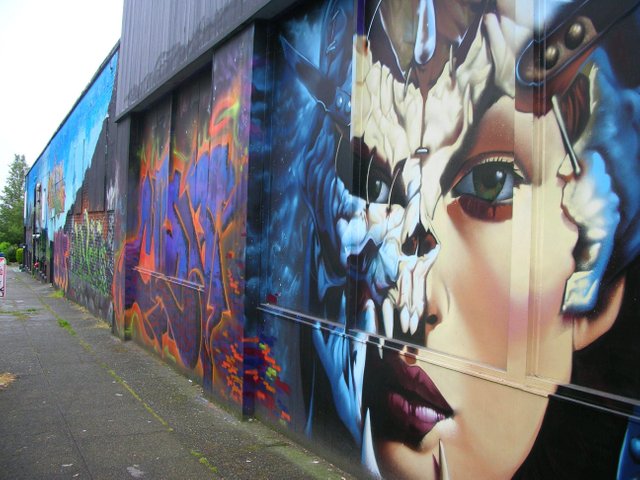
Graffiti art has long been a contentious form of expression, adorning urban landscapes worldwide with vibrant colors, intricate designs, and poignant messages. Far from mere acts of vandalism, street graffiti represents a complex intersection of artistic expression, social commentary, and cultural identity.
At its core, graffiti is an art form born from the streets, often crafted surreptitiously under the cloak of darkness or boldly displayed in broad daylight. It transcends conventional boundaries, challenging the confines of galleries and museums, and instead finds its canvas on the walls, alleys, and public spaces of cities. The medium varies from spray paint to stencils, wheatpaste, and even installations, each technique adding its unique texture to the urban fabric.
What makes graffiti compelling is its capacity to communicate powerful messages. Beyond its aesthetic appeal, it serves as a platform for social and political discourse. Artists use this medium to raise awareness about pertinent issues such as inequality, environmental concerns, human rights, and cultural diversity. The walls become a mirror reflecting the collective consciousness of a community.
Furthermore, graffiti serves as a testament to the artists themselves. Often anonymous, they adopt pseudonyms or "tags" as their signature, cultivating a distinctive identity within the graffiti subculture. These pseudonyms become their artistic alter egos, transcending the confines of personal identity to embody the spirit of their creations.

However, the perception of graffiti remains polarized. While some view it as an act of vandalism, others recognize its artistic value and societal relevance. Municipalities and property owners often grapple with balancing the preservation of public spaces and the appreciation of graffiti's cultural significance. Some cities have embraced street art, commissioning artists to transform once-dreary walls into vibrant murals, thereby legitimizing graffiti as a recognized art form.
One cannot overlook the undeniable influence of graffiti on mainstream art and culture. Renowned artists like Banksy have catapulted graffiti into the realm of high art, blurring the lines between the underground and the mainstream. Their works command substantial prices in auctions and galleries, signifying a paradigm shift in the perception of graffiti as a legitimate art form.
In conclusion, street graffiti transcends its origins as an underground movement to become a powerful means of expression, challenging societal norms and fostering dialogue. Its evolution from clandestine acts to recognized art has highlighted its cultural significance and its ability to captivate audiences while leaving an indelible mark on the urban landscape. As the debate on its legitimacy continues, one cannot deny the profound impact graffiti has on shaping our understanding of art and its intricate relationship with the streets.